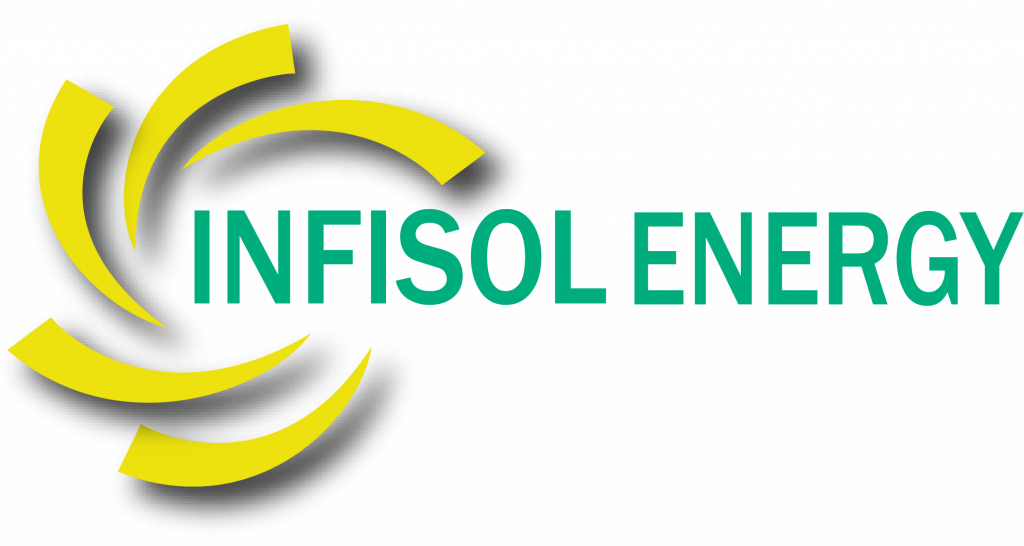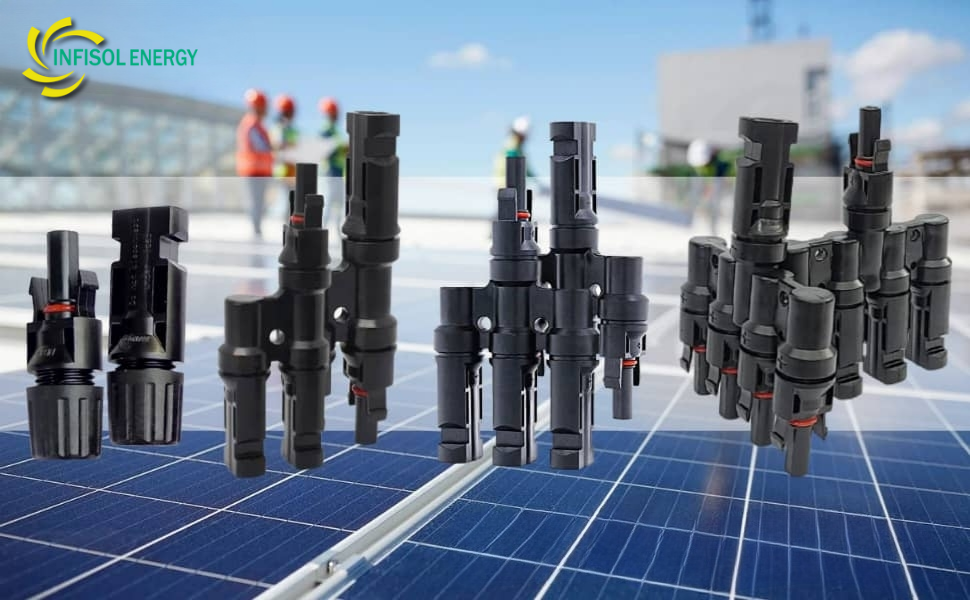Introduction
In the world of solar energy systems, MC4 connectors are the unsung heroes that ensure the seamless flow of electricity from solar panels to the rest of the system. These small yet crucial components play a pivotal role in harnessing the power of the sun efficiently. In this comprehensive guide, we will delve deep into MC4 connectors, exploring their functions, types, installation procedures, and much more. By the end of this article, you’ll have a thorough understanding of MC4 connectors, enabling you to make informed decisions when working with solar energy systems.
Table of Contents
1. What Are MC4 Connectors?
1.1 Definition and Purpose
MC4 connectors are specialized electrical connectors designed for photovoltaic (PV) solar power systems. They serve as the interface between solar panels, inverters, and other components within a solar installation. These connectors are renowned for their reliability and efficiency in transmitting direct current (DC) electricity from solar panels to the rest of the system.
The primary purpose of MC4 connectors is to ensure a secure and weatherproof connection between solar panels, thereby optimizing the energy transfer process. They are engineered to withstand the rigors of outdoor conditions, making them ideal for solar installations exposed to varying weather patterns.
1.2 Key Features
- Robust Design: MC4 connectors are built to last, with durable materials that can withstand UV radiation, extreme temperatures, and environmental wear and tear.
- Waterproof Sealing: These connectors come equipped with a sealing mechanism that prevents water ingress, safeguarding the electrical connections and preventing corrosion.
- Quick and Easy Connection: MC4 connectors are designed for simple and fast plug-and-play installation, reducing the time and effort required for setup.
2. Types of MC4 Connectors
MC4 connectors come in various types to accommodate different installation needs. Understanding the types will help you choose the right connectors for your specific solar system setup.
2.1 MC4 Male and Female Connectors
The most common types of MC4 connectors are the male and female connectors. They are designed to fit together securely, creating a reliable electrical connection. Male connectors have metal pins, while female connectors have metal sockets, allowing for a safe and secure connection.
2.2 MC4 T-Branch Connectors
MC4 T-branch connectors, also known as “T-connectors,” enable you to split the wiring from one solar panel into two separate paths. This is useful when you need to connect multiple panels in parallel.
2.3 MC4 Y-Branch Connectors
Y-branch connectors, as the name suggests, allow you to branch off in multiple directions. They are ideal for creating complex solar panel configurations, such as those used in larger solar arrays.
3. How Do MC4 Connectors Work?
3.1 Electrical Connections
MC4 connectors work by establishing secure electrical connections between solar panels, inverters, and other components of a solar power system. When sunlight hits the solar panels, they generate DC electricity. The MC4 connectors transmit this electricity efficiently to the inverter, where it is converted into usable AC power for your home or business.
3.2 Waterproofing and Durability
One of the key features that set MC4 connectors apart is their waterproofing. They are designed with a sealing ring that provides a tight and waterproof connection. This feature is crucial in preventing moisture and dust from infiltrating the connectors, which could lead to electrical faults and corrosion over time.
4. Installation of MC4 Connectors
4.1 Safety Precautions
Before installing MC4 connectors, it’s essential to take safety precautions seriously. Here are some steps to ensure a safe installation:
- Turn off the power: Always turn off the power supply to the solar panels and the inverter before working on the connectors. This reduces the risk of electrical shocks.
- Wear Appropriate Gear: Use personal protective equipment, such as gloves and safety goggles, to protect yourself during installation.
4.2 Step-by-Step Installation Guide
Step 1: Gather Your Tools
Before you begin, make sure you have all the necessary tools and materials, including MC4 connectors, a crimping tool, cable cutters, and a multimeter for testing.
Step 2: Cut and Strip the Cables
Using cable cutters, carefully cut the solar panel cables to the required length. Strip about 1 inch of insulation from the ends of the cables to expose the conductors.
Step 3: Connect the MC4 Connectors
- Identify the positive (+) and negative (-) connectors on both the panels and the MC4 connectors.
- Crimp the MC4 connectors onto the exposed conductors, ensuring a secure connection.
- Connect the male and female MC4 connectors, taking care to align the pins and sockets properly.
Step 4: Seal the Connection
After connecting the MC4 connectors, use the provided sealing rings to seal the connection tightly. This prevents water ingress and ensures long-term reliability.
Step 5: Test the Connection
Use a multimeter to test the electrical continuity and ensure that the connection is secure and functioning correctly.
5. Common Issues and Troubleshooting
5.1 Loose Connections
One common issue with MC4 connectors is loose connections. This can occur due to vibrations, temperature fluctuations, or inadequate crimping. To troubleshoot, check, and tighten the connectors if necessary. Regular inspections can prevent loose connections.
5.2 Water Ingress
Water ingress can lead to corrosion and electrical faults. To prevent this, regularly inspect the sealing ring on the MC4 connectors for any signs of wear or damage. If you notice any issues, replace the sealing rings promptly to maintain the waterproof integrity of the connections.
6. Benefits of Using MC4 Connectors
6.1 High Efficiency
One of the primary advantages of MC4 connectors is their high electrical efficiency. These connectors are designed to minimize power loss during the transmission of electricity from solar panels to the inverter. Their low resistance and secure connections ensure that the maximum amount of electricity generated by your solar panels reaches your electrical system.
6.2 Easy Maintenance
MC4 connectors require minimal maintenance. Their durable construction and waterproof sealing mean that they can withstand the harshest environmental conditions. However, it’s still essential to conduct periodic inspections to ensure that the connectors remain in good condition and perform optimally.
7. Frequently Asked Questions (FAQs)
7.1 What are MC4 connectors made of?
MC4 connectors are typically made of high-quality materials such as polycarbonate and copper. These materials are chosen for their durability, UV resistance, and electrical conductivity.
7.2 Can MC4 connectors be used in harsh weather conditions?
Yes, MC4 connectors are designed to withstand a wide range of weather conditions, including extreme heat, cold, rain, and UV exposure. Their waterproof sealing ensures that they remain reliable even in adverse environments.
7.3 Are MC4 connectors compatible with all solar panels?
MC4 connectors are widely compatible with most solar panels available in the market. However, it’s essential to ensure that the connectors you choose match the specifications of your solar panels for a secure and efficient connection.
7.4 How do I know if my MC4 connectors are properly connected?
To verify that your MC4 connectors are correctly connected, use a multimeter to test for electrical continuity. This will confirm that the positive and negative connections are secure and transmitting electricity as intended.
7.5 Can MC4 connectors be reused?
While MC4 connectors are designed for single use, they can be reused if they are carefully disconnected without damaging the pins or sockets. However, it’s recommended to replace them if they show signs of wear or damage to ensure the reliability of your solar power system.
Conclusion
In conclusion, MC4 connectors are the linchpin of solar energy systems, ensuring the efficient and reliable transmission of electricity from solar panels to the rest of the system. Their robust design, waterproof sealing, and compatibility with various solar panels make them an indispensable component of any solar installation.
It is strongly advised to conduct a thorough study and confirm with your solar installation company that the MC4 connectors being used are genuine.

